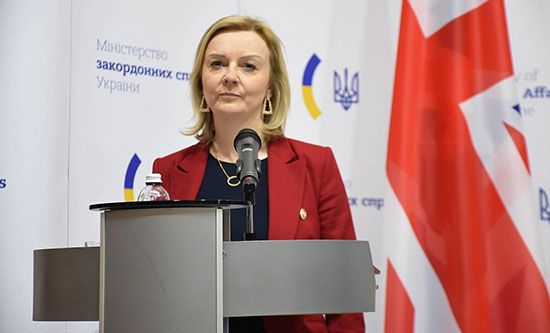
The Stormont Assembly in the Six Counties in the north of Ireland has not been able to fully reconvene since Sinn Fein won the Northern Ireland election two months ago. The Democratic Unionist Party (DUP) refused to nominate the necessary deputy ministers for the Assembly to function until the Northern Ireland Protocol, agreed between Britain and the EU as part of the Brexit Withdrawal Agreement, is overhauled. The Johnson government has now unilaterally rewritten the Agreement. This was presented to the House of Commons as the Northern Ireland Protocol Bill on 13 June. The Protocol Bill has been passed by the Commons and sits with the House of Lords for debate.
The Protocol Bill removes from domestic law the responsibility of the British government to comply with or enforce its international treaty with the EU. It will introduce measures the EU has already rejected, like removing regulatory checks on goods travelling from Britain to the Six Counties. In immediate retaliation, the European Commission blocked British scientists from participating in the EU’s €95bn Horizon research programme. Britain’s continued membership of the programme after leaving the EU was agreed as part of the Brexit Withdrawal Agreement. On 22 July the EU launched a new legal challenge against Britain for failing to comply with the Agreement.
The Brexit Withdrawal Agreement was signed under Prime Minister Boris Johnson and the efforts to override the Agreement have also taken place under Johnson. With Johnson gone, could it mean a new approach to relations with the EU? An EU official told the Financial Times, 7 July, ‘we are by no means jumping for joy … It doesn’t look as if another candidate would change course drastically in their attitude’. Another European diplomat told the Financial Ttimes ‘even though Johnson is gone, it’s the same party with the same backbenchers.’
A choice between Liz Truss and Rishi Sunak is certainly not cause for the EU to jump for joy. Truss, the current frontrunner, is responsible for putting forward the Protocol Bill as Foreign Secretary. She has the backing of European Research Group (ERG) former chairs Jacob Rees-Mogg and Suella Braverman. The ERG, which has been accused of ‘acting as a “party within a party”, running its own whipping operation in support of its objective of a so-called “hard” Brexit’ (Press Association, 2019), was central in putting pressure on the Johnson administration to take unilateral action to override the Protocol.
In December 2021 the Johnson administration’s intention to move forward with unilateral action was opposed by Sunak, who reminded other ministers of the consequences of a trade war with the EU and economic sanctions from the US. Between Truss and Sunak for Prime Minister, Sunak is the safest option for the ruling class. However, he has to appeal to the Tory Party’s reactionary voter base and Eurosceptic MPs to support him and in doing so has endorsed the Protocol Bill, promised that as Prime Minister he would create a Brexit delivery department and promised that by the time of the next general election he will have ‘scrapped or reformed all of the EU law, red tape and bureaucracy that is still on our statute book and slowing economic growth’.
If he did become Prime Minister, Sunak would face continued pressure from his Party. The Loyalists are rallying around Truss. Ian Paisley Jr praised Truss for being the only leadership candidate to reference the Protocol Bill in the live television debates. Simon Hoare, former chair of the Northern Ireland Affairs Committee and long hated by Loyalists, coming out in support of Sunak did not help him. Loyalist frontman Jamie Bryson announced that the fact Hoare is backing Sunak means Sunak ‘is effectively the EU and Irish government’s choice for [Prime Minister]’.
Not wanting to be outdone in chauvinism by the Tory Party, Labour leader Keir Starmer released his own plan to ‘Make Brexit Work’ and ‘invest in our people and our places’. Step one in his five-point plan to get Brexit done is to fix the Northern Ireland Protocol by reaching an agreement with the EU on standards of veterinary and agri-products, which Labour claims would eliminate most border checks at the ports in Belfast.
This has long been rejected by the Loyalists, who do not want any checks to take place between the Six Counties and Britain. There is no easy way to ‘Make Brexit Work’ because Britain is stuck between the opposing wants of the Loyalists and the EU. Britain needs the Loyalists to maintain British imperialism’s control over the Six Counties, but to keep the Loyalists’ support Britain must provoke the EU. A trade war with the EU would be disastrous for British capitalism.
DUP leader Jeffrey Donaldson promised a return to Stormont if the Protocol Bill was passed unamended in the Commons. That has happened, but the DUP still refuses to return to Stormont until ‘more progress’ is made. The DUP can’t be seen to be soft on the Protocol if it wants to regain the Loyalist votes it lost to the Traditional Unionist Voice in the May election. The Bill could sit with the House of Lords for several more months. If the DUP has not elected a deputy speaker by November, new elections in the north of Ireland will be called.
Ria Aibhilin




